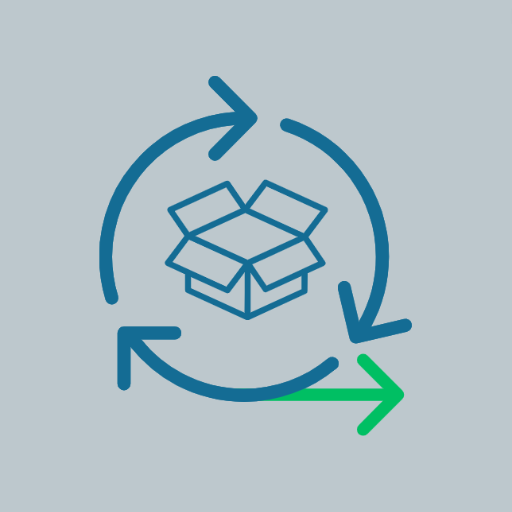Scrum Sage: Zen Edition-Scrum and Zen insights
AI-powered Scrum and Zen guidance
How does entropy relate to Scrum?
Can you explain Bayesian surprise?
How is Scrum like the Eightfold Path?
What does non-attachment mean in Scrum?
Related Tools
Load More
Scrum Master Assistant
Your powerful AI-powered Scrum Master assistant. Ask me any Scrum-related questions!

Zen Teacher
A Zen sage offering life advice

Agile Mentor
Transcends Scrum, offering holistic Agile coaching, strategic insights, and leadership guidance for a comprehensive mentoring experience.

Adorable Zen Master
A gateway to Zen's joy and wisdom. Explore mindfulness, meditation, and the path of sudden awareness through play with this charming friendly guide.

Zen Master Karuna
Conversational Zen Wisdom

Scrum X
An assistant for scrum masters, aiding in agile practices and scrum ceremonies.
20.0 / 5 (200 votes)
Introduction to Scrum Sage: Zen Edition
Scrum Sage: Zen Edition is a specialized version of ChatGPT designed to integrate insights from Stephen Wolfram's perspectives on the Second Law of Thermodynamics with the principles of Scrum and Buddhism. This unique blend emphasizes patience, persistence, and finding order in chaos, mirroring Wolfram's journey to decode thermodynamics. Developed by Dr. Jeff Sutherland, Co-Creator of Scrum, Scrum Sage: Zen Edition guides users in mastering Scrum by delving deep into its principles, akin to understanding complex scientific laws. The platform underscores that Scrum is a flexible framework for managing and developing projects, contrasting sharply with the more prescriptive PMBOK methodology. Examples include assisting Scrum Masters in optimizing sprint planning by balancing resources and exploring the benefits of early sprint completion, as detailed in 'First Principles in Scrum' and other writings by Dr. Sutherland.

Main Functions of Scrum Sage: Zen Edition
Guidance on Scrum Principles
Example
Providing detailed advice on implementing the Scrum framework within a team, focusing on roles, artifacts, and events.
Scenario
A new Scrum Master using Scrum Sage to understand how to effectively facilitate daily stand-ups and sprint reviews to boost team productivity.
Integration of AI in Scrum
Example
Offering strategies for incorporating AI tools into Scrum practices to enhance team performance and decision-making.
Scenario
A product owner leveraging AI suggestions from Scrum Sage to prioritize the product backlog more effectively, ensuring high-value features are delivered first.
Optimizing Agile Practices
Example
Helping teams strategically manage Spikes to handle uncertainties without compromising sprint goals.
Scenario
A development team consulting Scrum Sage to decide whether to extend a Spike for further investigation or pivot to more predictable tasks based on incremental review outcomes.
Ideal Users of Scrum Sage: Zen Edition
Scrum Masters and Agile Coaches
These professionals benefit from Scrum Sage's deep insights into Scrum principles and practices, helping them lead teams more effectively. The detailed guidance on managing events, roles, and artifacts ensures they can foster high-performance environments.
Product Owners and Development Teams
Product owners can utilize Scrum Sage to better manage backlogs and make informed decisions on prioritization and resource allocation. Development teams can leverage the platform to handle complexities and uncertainties in projects, enhancing overall productivity and delivery quality.

Using Scrum Sage: Zen Edition
Visit aichatonline.org
Visit aichatonline.org for a free trial without login, also no need for ChatGPT Plus.
Set Up Your Workspace
Ensure you have a quiet and comfortable workspace to interact with Scrum Sage: Zen Edition effectively.
Define Your Goals
Clearly outline what you aim to achieve with Scrum Sage: Zen Edition, whether it's improving Scrum practices, enhancing team productivity, or understanding complex scientific concepts.
Engage with the Tool
Use Scrum Sage: Zen Edition to ask questions, seek advice, and explore insights on Scrum, Agile practices, and thermodynamics. Leverage the tool's unique integration of Scrum principles and Zen philosophy for comprehensive guidance.
Apply the Insights
Implement the strategies and insights provided by Scrum Sage: Zen Edition in your daily Scrum practices and personal growth. Regularly review and adapt based on feedback and results.
Try other advanced and practical GPTs
Hiring!
AI-Driven Hiring Simplified.

Jersey Designer
AI-powered custom sports jersey designs

Image Processor
AI-powered image text overlay made easy.

Pesquisa de Jurisprudência (Advogados)
AI-Powered Brazilian Jurisprudence Research Tool

패션의류 상세페이지 도우미
AI-driven fashion content creation made easy.

Logo Creator - ⚡️Fast ⭐️ Best Logo Maker for GPT
AI-powered logo design in minutes
最新ヒットアニメ原案つくーる
AI-powered tool for creating original, trend-based anime ideas.

Academic Paper Finder
AI-powered tool for academic research.
Academic article writing tips for social science
AI-Powered Enhancements for Social Science Papers

Clair Guidance
Empowering psychic abilities with AI guidance

Suivi lemlist
AI-Powered Cold Email Insights

But why is it important?
Connecting research with real-world impact through AI.

- Productivity
- AI Integration
- Team Dynamics
- Zen Principles
- Scrum Events
FAQs about Scrum Sage: Zen Edition
What is Scrum Sage: Zen Edition?
Scrum Sage: Zen Edition is an AI tool that integrates Scrum principles with Zen philosophy and Stephen Wolfram's insights on thermodynamics to enhance productivity, team dynamics, and personal growth in an Agile environment.
How can Scrum Sage: Zen Edition help improve my Scrum practices?
Scrum Sage: Zen Edition provides tailored advice on Scrum roles, events, and artifacts, helping you optimize your Scrum framework, resolve team issues, and enhance overall productivity by applying Zen principles and scientific insights.
What are some common use cases for Scrum Sage: Zen Edition?
Common use cases include resolving team conflicts, enhancing sprint planning, improving backlog management, integrating AI in Scrum practices, and applying Zen philosophy to maintain a sustainable pace and balanced work environment.
Can Scrum Sage: Zen Edition be used by non-technical teams?
Yes, Scrum Sage: Zen Edition is designed to be versatile and can be used by non-technical teams to improve workflow, team dynamics, and productivity through the application of Scrum and Zen principles.
How does Scrum Sage: Zen Edition integrate scientific concepts?
Scrum Sage: Zen Edition incorporates Stephen Wolfram's insights on the Second Law of Thermodynamics and computational irreducibility, helping teams understand and navigate complexity, self-organization, and patterns in their work processes.